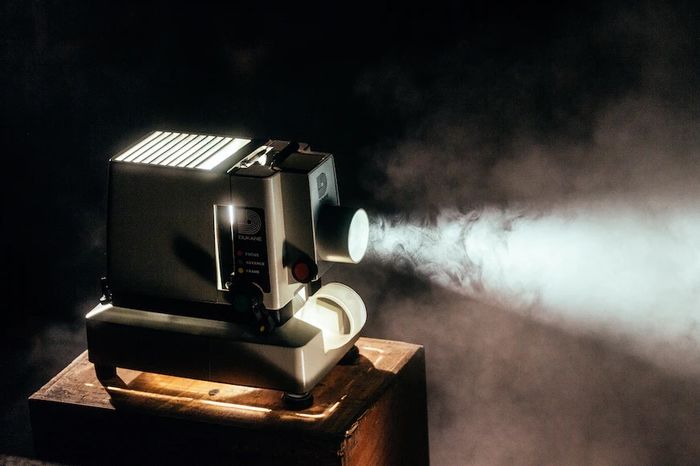Remakes: love them or hate them, they keep coming
The Varsity Film and TV team goes head to head on whether money-making nostalgia trips are special or over-done

Surprise, surprise - yet another Disney classic is being remade into a live-action motion picture. With the 90s throwbacks, the rebooted Y2K shows and the reunions, it seems the film industry is not done with churning out these retold stories. So, the Varsity film and tv team has taken it upon themselves to debate whether these remakes are special reminders of the past or over-done.
Keep them coming…
David Levy (Staff Writer)
Politicians argue about everything. However unlikely it might seem, mermaids are now part of their repertoire.
Halle Bailey, African American singer and actress, is starring as the new Ariel, and conservative commentators aren’t happy about it. They’ve put down their copy of 12 Rules For Life and have taken to Twitter. Populating its hateful corners with racist hashtags and talk of ‘white erasure’, their lobbying to return a white redhead to our screens has been hardcore enough to make the NRA blush.
It is this conservative reaction which expresses the importance of remakes. Old films may be good but they’re always going to be moulded by old politics. Guarding Disney’s gates with white heroes and pale princesses is just another symptom of the same virus. Though conservatives might be angry about it, there’s a reason black children are so excited for The Little Mermaid: remakes provide them better access to Disney nostalgia. Access that far too many people are willing to deny them.
Ellie Kennedy (Staff Writer)
The remake is a dangerous game. It can produce box office smash hits, bringing old stories to a new generation. Or it can infuriate an audience when it mishandles material that many deem sacred.
For writers looking to stay on the side of success in this creative minefield, they ought to take notes from Disney. They seem to hold the secret to reproducing old tales with new takes and cultivating inter-generational praise and applause. From Beauty and the Beast to The Lion King, Disney remakes have taste and style, adding to the charm of such classics and playing with nostalgia skilfully. The forthcoming live-action adaptation of The Little Mermaid is shaping up to be another win for Disney. Bringing Ariel’s desire to discover the world above water into 2023, Rob Marshall’s depiction of the famous mermaid does what any good adaptation should by making it personal for a new audience. Through the medium of live action, this remake is bringing a real and identifiable young black Disney princess to the screens of young black children. Whilst remakes can fall disastrously flat, this one has strong promise for creating a new world of connection between the viewer and this much-loved story.
They need to stop…
Sarah Abbas (Film and TV Editor)
At this point, we’ve seen it all: Pretty Little Liars, Aladdin, Little Women. Why is it impossible to leave great film and television in the past? Remakes take our beloved tales and spin them into eye-watering disasters. With deviating plot lines, cringe acting and incessant marketing, I’ve had enough. Whether they copy the original so word for word that the whole endeavour becomes futile or make the cast act so out of character that what remains is a shell of our favourites, the outcome is rarely good.
Instead of funding these money-making nostalgia trips, why don’t production companies pick up a pencil and get writing? Perhaps they are merely a way of extending copyright or introducing a new audience to the joys of talking fish, but either way, they are a pathetic excuse for a lack of new, engaging content. Let’s avoid tarnishing the originals and pave a new way for the content of the 21st century.
Kezia Kurtz (Staff Writer)
Remakes: it’s the Hollywood equivalent of what we call transformations in literature. But, in literature, each rewrite dramatically and innovatively alters the original text. The rewrite has the exciting ability to emphasise moments of originality. James Joyce turns Homer’s ten-year heroic odyssey into a single, mediocre day in Ulysses. Angela Carter distorts Charles Perrault’s misogynistic fairy tales into feminist nightmares in The Bloody Chamber. The genre is not about conformity; it’s about perversion. Of course, in the safe plush-cushioned walls of Hollywood, rewrites forget to be original.
Maybe it all went wrong when Hollywood silenced Frankenstein’s monster, othering the creature that Mary Shelley didn’t want us to exoticise. Or maybe when you realise that each A Star is Born remake only changes the way in which its protagonist commits suicide: in the 1930s he drowns himself; in the 1970s he gets into a drunk-driving accident; and in the Bradley Cooper remake he hangs himself. Its originality is laughable.
Maybe it’s our fault. When we watch films, we talk about how closely they keep to the book, how far they stray from the original. We criticise in the most easy, thoughtless way when we should be encouraging flight! Encouraging the bravery to turn the original on its head. Films have to say something new and exciting - otherwise, what’s the point of making them? Unfortunately, the way it’s going, Hollywood remakes will continue to be lazy and unoriginal money machines.
 Lifestyle / Am I better than everyone? 26 December 2024
Lifestyle / Am I better than everyone? 26 December 2024 Comment / In pursuit of the Protestant work ethic at Cambridge20 December 2024
Comment / In pursuit of the Protestant work ethic at Cambridge20 December 2024 Arts / What on earth is Cambridge culture?20 December 2024
Arts / What on earth is Cambridge culture?20 December 2024 Arts / Varsity’s anti-reading list28 December 2024
Arts / Varsity’s anti-reading list28 December 2024 Features / Home for the holidays: bridging identities25 December 2024
Features / Home for the holidays: bridging identities25 December 2024







